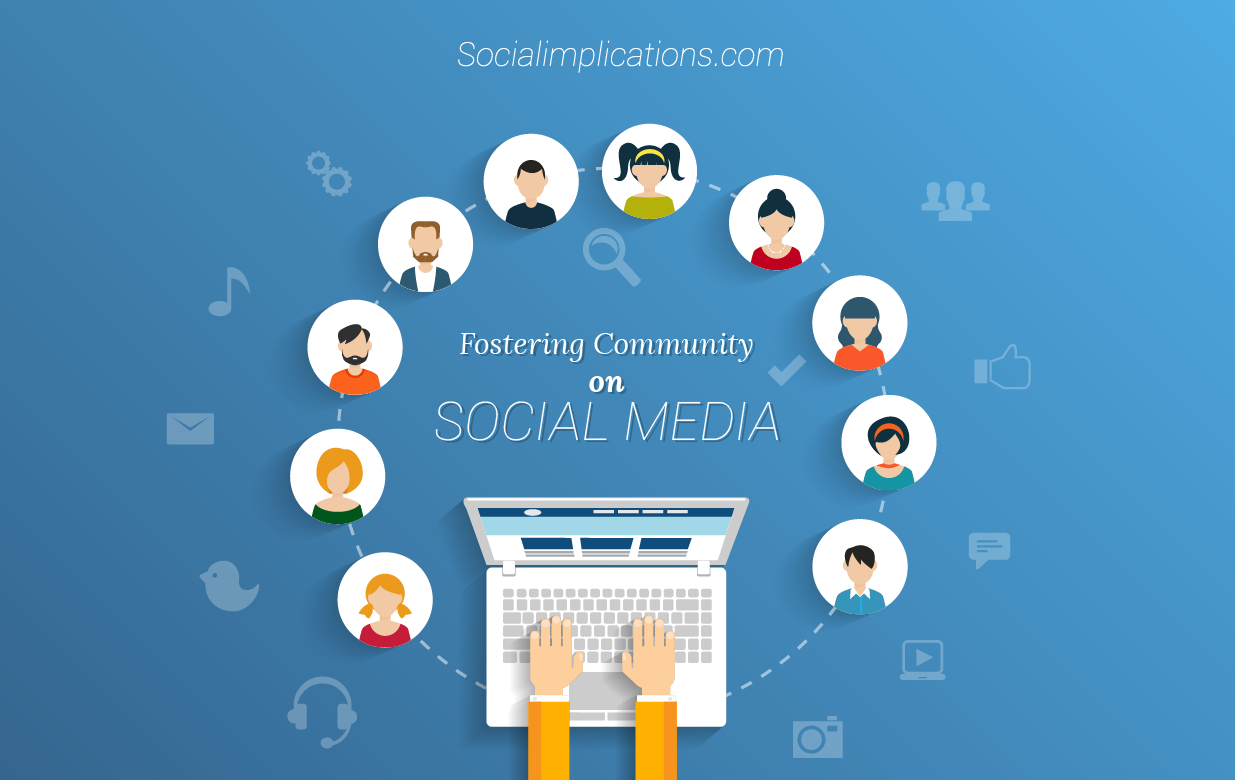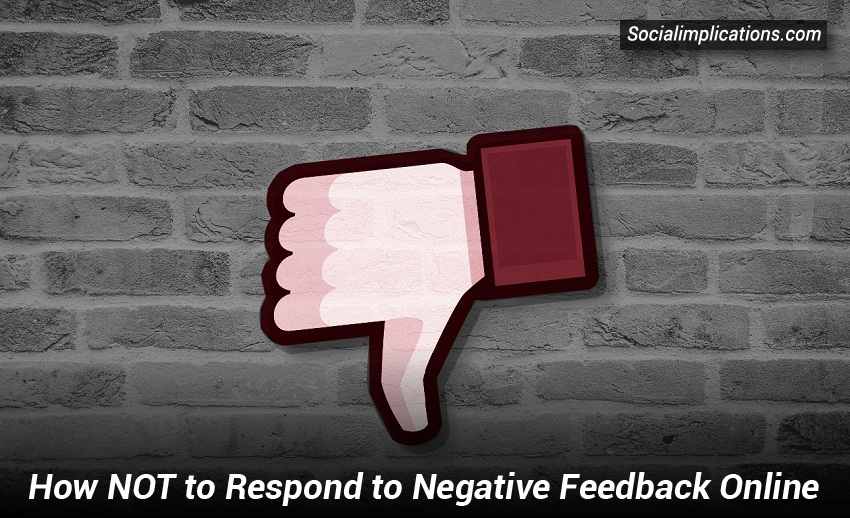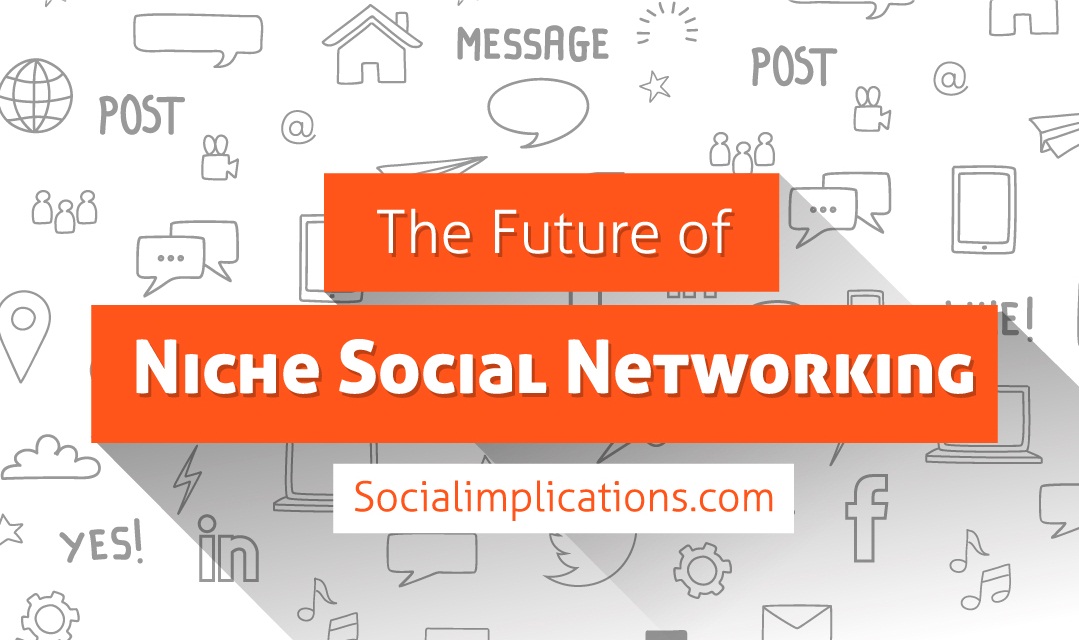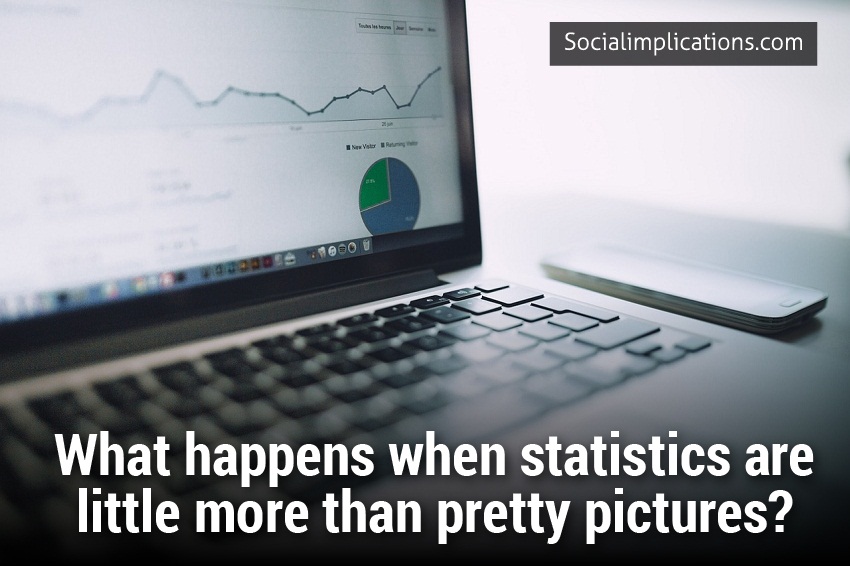If there’s one word I get tired of hearing in social media, it’s “community.” Sometimes when I’m reading a blog or I’m on Twitter and someone spews that buzzword, I can’t help but cringe. I know this won’t likely be a popular opinion, but I’m going to say it anyway. “Community” is overrated.
Whoa now… put the pitchforks down and just hear me out.
What is “Community?”
For the purpose of this discussion, what exactly is community? Well, it’s just that. It’s discussion. It involves more than one-sided messages — you know, those annoying little things like listening and acknowledging the existence of others.
Is “community” a bad thing? No, that’s not what I’m saying at all. I run communities of my own. I’ve helped to manage a very large community of Web professionals in the past. And overall, I love the community aspect of social media. It brings people together, and I’ve met some truly amazing folks since getting into the social media game about six years ago.
Let’s focus on the business side of things though, and the dreaded “community managers” I’m so tired of hearing about. If I see one more person claim to be an expert in “community management” because they ran their own blog or built up Twitter followers through follow spam, screaming just won’t cut it.

Where Community Management Goes Wrong
Look. If your company builds a community around the brand, a person, a service, or a product, that’s great. And you do have to “manage” that community to some extent. You need to partake in conversations. You need to know what people are saying and be able to gather feedback. You need to kill spammers as they surface (I’d say “not literally,” but I’m not sure if I’d mean it). In other words, you need to have an active presence.
Those are all good things, so let me be clear in saying that I don’t think any of those examples give “community management” a bad name. What does then? As usual, it’s the obsession with and half-assed understanding of an issue that brings the fight out in me. More specifically, here are some of my personal pet peeves:
- Fresh-faced “community managers” with no basic understanding of public relations (remember, this idea of relationships is nothing new);
- Company reps who think community management is all about directly pushing sales;
- Company reps who think community management has nothing to do with sales;
- Companies acting like they have no control and that they’re at the complete mercy of the community;
- Companies acting like they should have excessive control over community members;
- Companies that set up a pseudo-community but never interact with their customers;
- And the biggest pet peeve of them all — companies that try to pretend “messages” don’t matter once two-way communication is involved.
Let’s explore that last one a bit.
Why Messages Still Matter
I’m not going to bore you with a long spiel about how you and your company still control your image on the Web — not the members of your community. (Oh wait, I already did that.) But it’s important. You still have a certain image you want to portray. That means you still have messages to get out there.
Social media can lend incredible support to your larger messages. More importantly, social media feedback can help you change and adapt those messages as needed. But that doesn’t mean your company’s community gets to decide what image your company has — not by default at least.
Remember, no matter what happens in your community, it’s up to you (and how you respond) that ultimately determines your company’s image. Will there be exceptions? Definitely. But as I often say to the freelance community, “don’t ever expect to be the exception to the rule.” In the meantime, just make sure that while community might play an important role and while those voices are incredibly valuable, you don’t allow that to completely drown out the voice of the company (or yourself). Community should be (at least in my eyes) a complement to the rest of your marketing and PR strategy — not a replacement.
Not everyone gets community management wrong. Do you have some great examples to share of community management at its best? Leave a comment and tell us about it!














I’m not keen on naming people who define community. The only reason I use Twitter is because of the connections I make – I help them, they help me, we communicate. I recently posted an article along this same line and have another one coming up soon.
Unless a person is willing to devote an inordinate amount of time, I don’t believe anyone can effectively communicate with more than one aspect of social media. And at this time that means Twitter or Facebook.
Is ‘community’ overrated? Yes. In fact the word friend on FB is a misnomer in my opinion. The more distant, the more layers of separation we have between us and another person, the more diluted the ‘friend’ becomes. And we are reduced as a living, breathing person as well.
Thanks for allowing me to make this lengthy comment.
I’d say limiting yourself to just one area of social media is a bit too narrow for my tastes. After all, blogging is social media. If you run a company blog and a Twitter account, you’re already putting social media to work for you on two fronts. Personally I run about a half dozen blogs right now (my own), plus blogging for clients, plus 3 Twitter accounts (personal, one for a primary blog “community,” and one that a partner and I started together for an audio play series we produce). It’s not overwhelming. But we limit it there. We did the work to find out where the bulk of our audience was in the social sphere. We weighed the different tools (Facebook’s a complete no-go in my book due to their sometimes schizophrenic behavior and repeated privacy concerns). Twitter was the best option for us to focus on in addition to the actual blogs. I do think narrowing things down is vital though, even if not just to one. I actually shared my thoughts on this on one of Hasan’s other blogs in the past:
http://www.dirjournal.com/guides/social-media-marketing-enough-is-enough/
I think it’s useful to have separate communities. I use Twitter for the big circle of colleagues, Facebook for friends and acquaintances (and don’t use use it nearly as much as my daughters) and linked in for people I’ve directly worked with or have close networking ties.
I’m with Hal – you could do nothing else but social media and I’m not sure how much it will do for you. I spend most of my time writing for myself and clients and a bit of time Tweeting.
I agree completely, and that’s actually something we discussed for a potential future blog post here. 🙂 There are definitely risks involved with merging professional and personal communities. As for the issue of getting so sucked into sm that it affects productivity, see the link the I posted in response to Hal above.
There are many different definitions of community. I see your post as being primarily about a community as it applies to a business reaching out to a specific part of their audience. When I think of business communities I think of sites like Merchant Circle or Yelp rather than a community that revolves around a brand.
The comments so far are more about the usefulness of individual Social Media sites to their users. What I believe will happen is that while we will probably all still use Twitter and some will practically live at Facebook, the majority will eventually find communities related to their interests and spend their Social Networking time in those communities.
For example, do-it-yourself types might hang out primarily at HomeRefurbers while those interested in small businesses may be at StartUpNation and bloggers might choose BloggerLuv. Which communities built around mutual interests you join will eventually be more important than the generic Social Networking sites.
How we interact online will be more similar to how we interact offline because who we relate to regularly will influence our tastes, where we shop, what we eat, and our priorities. The sooner we discover and support the communities that best fit us the sooner we benefit from them.
Early adopters are already doing this and their work will help decide which additional solutions the groups where they interact most will use. Instead of our activities being scattered, members of a particular community will benefit from knowing where the other members will support them.
For example, one group of bloggers will collectively end up using a certain number of specific blog directories that best suits their members. Which ones they choose may differ from what another group of bloggers uses.
That same concept will apply to which niche communities they participate in, whether they prefer StumbleUpon or Reddit or Mixx, etc., what causes they support and what events they participate in. Communities need to make sure they provide what their users most want.
When this develops, businesses would be better advised to join the communities their target audiences prefer instead of expecting them to join a community built around a brand.
The issue of niche social media outlets / tools was also in the list of things previously discussed for a future post here (more specifically the possible role niche forums play in slowing down the niche social network transition). You folks need to get out of my head today. 😉
I agree that niche is often the way to go. On one hand, we’ve been there for a while (the example you give of SU vs Sphinn, etc.). On the other hand, we have a long way to go (popularity of general tools like Twitter and Facebook as opposed to more niche outlets).
Some people are going to hate hearing this, but I actually see this as a way for Myspace to get a second wind. They started out with a niche focus and did an outstanding job. Then they got a bit too big for their britches, they were too slow to deal with the spam issues that resulted from their popularity, and they opened the door for Facebook to come into their current success. Now they’re maturing and settling back into their niche — only question being whether or not it’s too late to save the brand with that audience. Facebook is going through a similar lifecycle — started out with a narrow niche, still getting too big for their britches. And I’d be surprised if their attempt to take over social media and other areas of the Web doesn’t either cause a complete collapse down the road (looking into my crystal ball, I’d bet privacy issues would be to blame if this happens), or they’ll also go back to a niche foundation. I think they still have room to grow before they hit that turning point though, so only time will tell.
This is an eye opener for all those who blindly try and create a bunch of followers, friends and fans with no clear objectives as to why you are building that community, what value are you providing to maintain that community, and what are your expectations from this community you are building. Seems like simple questions, but the answers may be more difficult to come up with.
You’re right. One of the worst things companies can do is put their focus on the numbers (how many followers / friends) rather than the relationships.
This reminds me of a blogger in my own primary niche who claims to have the largest “community.” If you account for nothing but stats (pageviews, etc.), you might be right for the time being. However, community is more than that. This blogger inflates that appearance of “community” by approving comments most people know are spam (“great blog!” from Home Fitness Equipment or some other keyword stuffed spammer with nothing of substance to add). It’s fairly easy to manipulate community size these days in blogging (and other areas).
This site is actually a great example of what I’d consider a worthwhile niche community. It’s not about back-patting and mutual commenting. It’s not about spamming links. Readers of Social Implications have been so far rather impressive — you have insightful things to say, you stop by for more than a quick blurb, and you post comments that make me (and hopefully others) actually think. So hats off to you folks for being an active case study of social media done well. 🙂
I can’t say I disagree with any of your points, but I am puzzled over the need to rant about it. I hear people all over the place claiming to be “social media experts” and “social media gurus” and “social media “ninjas”, but I have yet to see anyone claim to be a community manager” anything (not even a community manager ninja!).
You just travel in different circles (or is that “communities?”) I suppose. I hear the term constantly. In fact, it’s very often writers who are recruited into these community manager positions with absolutely no relevant background, so I’ve seen several colleagues on that front make the leap. And if you’d seen as many incompetent folks jump into what amounts to a PR capacity as I have (and in some cases even lose the job and then claim having it at all makes them a social media and community management expert), you might be ranting too. 😉
I have more than my fair share of thoughts on “social media experts / gurus.” It’s a similar issue. It’s even a bigger issue. But that doesn’t mean the inexperienced “community managers” and the potential effect they have on the relationships built between companies and their audiences (or even individuals) isn’t an issue to be considered in its own right.
A topic close to my heart. I spent some time calling myself a Community Advocate, and probably still have that moniker one some of my social profiles. It’s the role I’m playing at my day job and it’s what I consider to be my role within our 20SB community.
I feel as if I grew up with our community at 20SB; we grew organically and as ‘managers’ have simply tried to make it a better place for everyone to continue connecting with one another and getting a lot out of the experience. My approach has always been that the community is a product of its members, and our job is to listen to what they want to become. Give them tools to connect better and highlight as much of the great things they do as possible. Advocate their accomplishments and your community will strengthen; exploit your community and it will weaken.
Anyway, I’m proud of what we’ve done at 20SB, but consider the community management/building/advocacy process to be constantly evolving.
If everyone was as warm towards their communities and those they participate in as you seem to be, “community management” wouldn’t sometimes be such an ugly word. 🙂
You bring up a very important point (or at least one I personally feel is important) — organic growth. I’m a big fan of that approach in building communities. I’d rather provide information and other things people want, interact with them and get to know them, and have them spread the word than go out on aggressive campaigns to build links, new social profiles, etc. trying to scrape every last set of eyes out there. It’s slower-going, and I can see why that wouldn’t appeal to many people on the business side of things. But it’s a far more rewarding experience, and I find the community becomes much more tight-knit that way. In the end, it’s also better for business. The closer the community, the more inherent trust there probably is, and the more likely those community members are to become (or remain) customers if that’s one of the company’s goals.
Its all relative I suppose. My main focus of using social media tools is in the world of planning/urban planning/public involvement where the tools, sites, etc truly are meant to be an extension of a physical community. For example, building a Facebook or Ning site for a neighborhood revitalization project. Ideally that site will result in a virtual extension of the actual community ties that take place in person, and the site or “community” will continue to grow and thrive after said project is complete. So in this example, and many more, at least as social media applies to the field of planning, “community” is one of the key building blocks to success and a natural extension of the existing on-the-ground community.
There’s certainly nothing wrong with existing communities branching out to connect on the social Web. As for them continuing to grow and thrive after project completion, how’s it working out? Do you have any examples you can give us of how these development projects led to longer-lasting communities in these social media arenas? I’m not saying they don’t exist. I’m just curious, and interested to see whether these communities have real value beyond the scope of what people can already get locally, if that’s who they’re continuing to network with anyway.
I think the whole concept of having a community around your business is very dynamic and keep a close eye around you is very important. If you fail to engage your community in some sort of discussion or action you will loose their attention over time. If you are a large brand maybe you are not too worried about it but if you are a smaller brand and you have to really hustle to build that community you are going to want to do everything to hold onto them.
Just don’t get too starry-eyed about “community” in the process. Community is one part of an overall marketing / PR strategy. Not the whole thing. It’s when you put too much emphasis or unrealistic expectations onto a community that you’ll fail. (And yes, ignoring them will lead to that as well.)
@Jennifer – spot on exactly what I was going to say. It all sounds great in theory but you have to really come back to what’s practical and effective in the end.
Unfortunately I think a lot of folks still haven’t figured out what “effective” is for them when it comes to social media and community building yet.